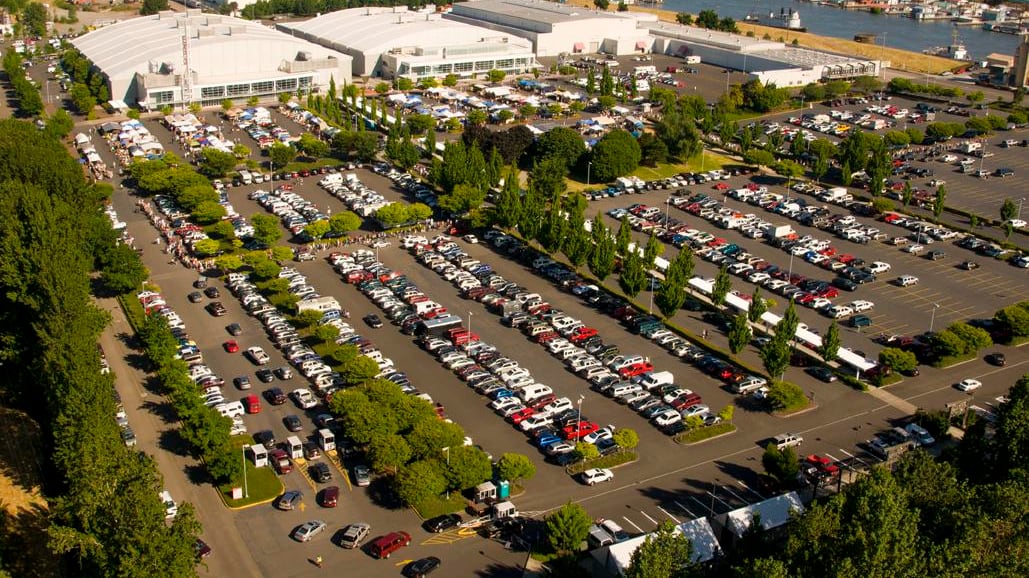It’s been nine months since City Commissioner Dan Ryan pledged to open six “safe rest villages” across the city as an alternative to street camping. In that time, his office has selected only three locations. As the clock ticks on Ryan’s pledge, we examine the status of the other three promised villages.
Locations: Last July, Ryan asked all city bureaus for a list of available properties owned by the city that could be used as sites for safe rest villages. Seventy were suggested, though most were quickly ruled out.
Three sites were seriously discussed: a portion of the parking lot at the Expo Center, a parking lot adjacent to Errol Heights Park in Southeast Portland, and the former campus of Whitaker School in Northeast Portland.
What happened: Less than a week after Ryan announced possible locations for the villages in late September, the city reversed itself on the paved lot near Errol Heights Park in the Brentwood-Darlington neighborhood because it was in a flood zone along Johnson Creek, something the city hadn’t checked before selecting it.
Ryan’s office and officials at Metro, the agency that owns the Expo Center, couldn’t agree on a parking lot to lease there for people living in their vehicles (“Long Term Parking,” WW, Nov. 10, 2021). Metro offered the city a gravel lot, but Ryan’s team said in September the city could only work with a paved lot. After nearly a year of negotiations, the deal fell through—the city said the cost of making the gravel lot suitable was too high.
Ryan first approached Portland Public Schools about the Whitaker School site next to Fernhill Park in the Concordia neighborhood in October. (The school shut down in 2001 after WW reported high levels of toxic chemicals in the ground there.) The Portland School Board shot down the idea in January. Board member Julia Brim Edwards said at the time, “We have a fiduciary responsibility to use our land and properties to support PPS on our mission of educating students, and this proposal doesn’t hit that mark.”
What’s next: Bryan Aptekar, the safe rest village communications liaison, says Ryan’s office is now in “conversation with several property owners about specific locations right now.” It won’t discuss those locations.
Neighborhoods have balked at Ryan’s approach to community engagement: Select a site first, then talk to nearby residents. That method has intensified backlash to each selected location, but Ryan’s office says it’s the right way to do it.
“Once we know a site is viable, meaning there are no significant zoning or permitting concerns and the property owners support the concept, among other things, then we announce the site,” Aptekar says.
In October, Ryan’s office provided a list of reasons why the timeline kept getting pushed back. It cited labor shortages, “universal support for the concept of safe rest villages, but near universal disapproval of any specific proposed location (strong NIMBYism),” hesitation from landowners to offer their land, and media leaks about locations before they became public.
Ryan’s office says all of those barriers still stand.
On Feb. 18, Mayor Ted Wheeler announced his intention to seek more locations for sanctioned homeless camps—each of them far larger than Ryan’s villages. Ryan voiced skepticism: “I’m all in for urgency—but I cannot support this idea to corral hundreds of vulnerable people without social services, without community safety assurances, or a strategic management plan in place.”
As of press deadline, the city has not sheltered a single person at any of its pledged homeless villages.
This article was published with support from the Jackson Foundation, whose mission is: “To promote the welfare of the public of the City of Portland or the State of Oregon, or both.”
